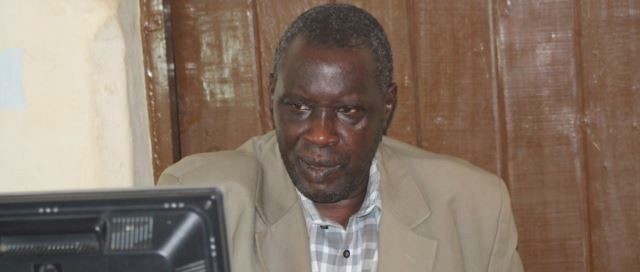South Sudan’s national security service seized the entire Thursday print run of Juba Monitor newspaper over two articles that it considered objectionable and not fit for the public to read.
Both articles addressed political issues. One was a column by the paper’s editor-in-chief proposing the formation of an interim government until elections in 2015, the other was a historical retrospective about past tribal tensions within SPLA.
Juba Monitor is printed in Khartoum owing to lack of commercial availability of print presses in Juba. It appears about four times per week depending on the frequency of commercial flights from the Sudanese capital.
Alfred Taban, chief editor of the Juba Monitor, said that the newspapers were printed Wednesday evening and arrived at Juba airport on Thursday at 9:30 a.m. There several papers were taken by security agents and reviewed, after which the security service decided to hold the entire print run of 1,500 papers.
Juba Monitor’s editor was directed to the main security office in Jebel area. From there he was told to go to the Ministry of Information and Broadcasting, where he met with Director-General Paul Jacob.
The government official told the editor he was not aware of what had happened so he made contacts with the security service to find out. He told the editor-in-chief to wait at the ministry’s offices. After some three hours waiting, Taban was informed of the reasons for the seizure of the paper.
“The economic situation is very bad and printing is very expensive. We had three or four advertisements in this edition which was very good for these days but now the revenue is lost,” the editor told Radio Tamazuj on Friday.
A number of journalists have been detained or threatened since the outbreak of the crisis in South Sudan on 15 December. Most newspapers suspended printing during at least part of the last month owing to security problems or economic difficulties.
In three state capitals – Bor, Malakal and Bentiu – radio stations went off air owing to hostilities. Elsewhere, fuel shortages forced many stations to reduce their broadcasting hours.
There are also reports of journalists being physically attacked, though not because of their profession but because of their ethnicity. In another case, a journalist’s home was burgled.
Photo: Juba Monitor Editor-in-Chief Alfred Taban (VOA)




